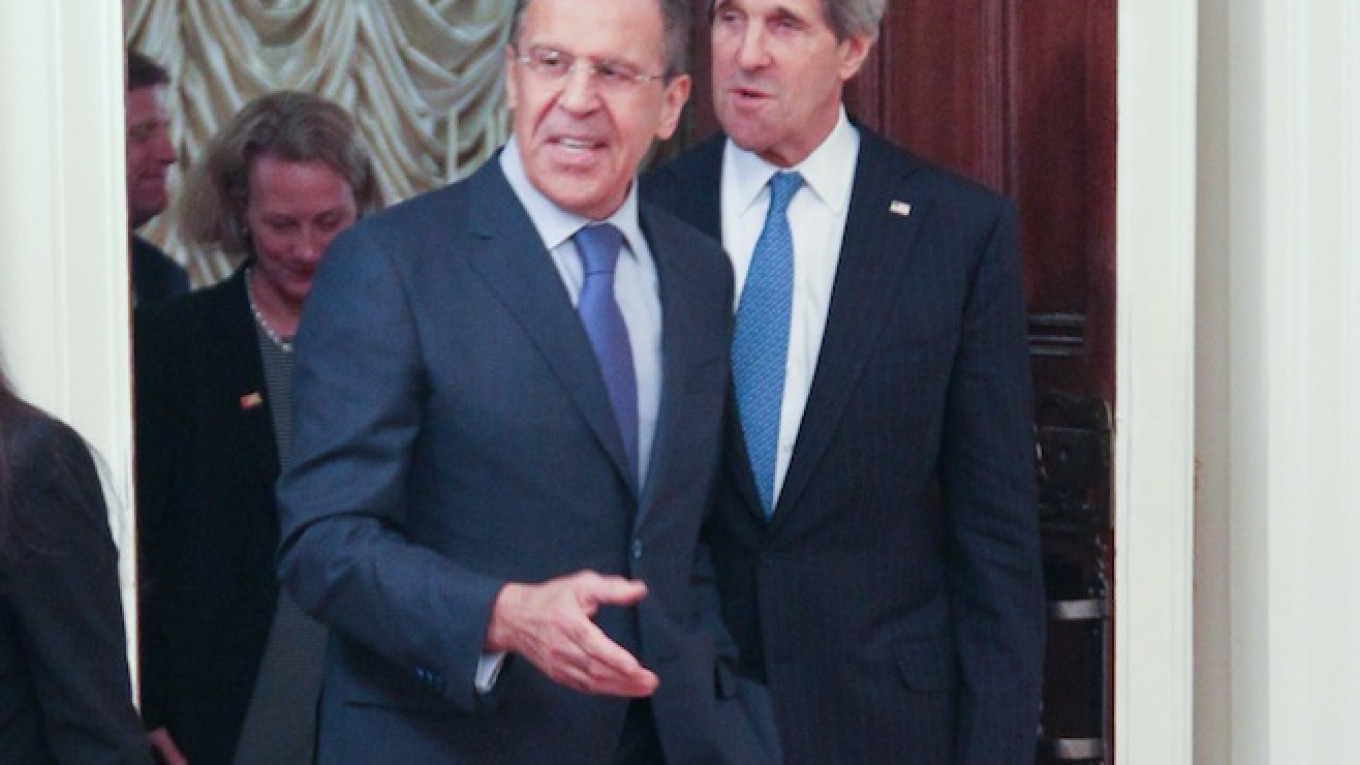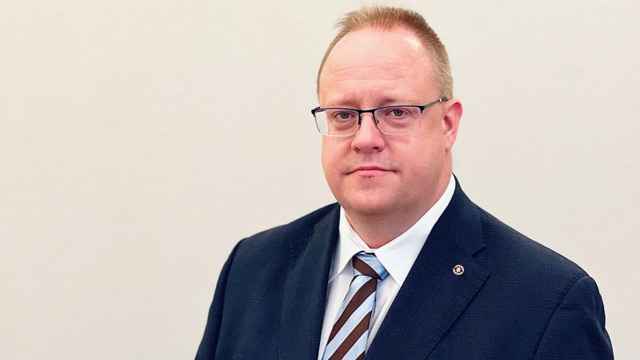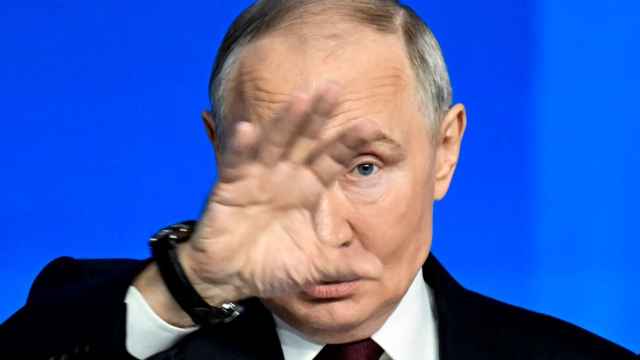Russian Foreign Minister Sergei Lavrov has reiterated Russia's stance that the way to solve political turmoil in Ukraine is by federalizing the country, while his U.S. counterpart John Kerry insisted on the need for Russia to reduce its military presence in the region.
At a closed meeting with the U.S. Secretary of State in Paris on Sunday night, Lavrov said that constitutional reform in Ukraine should include greater autonomy for Russian-speaking eastern Ukraine in order to "ensure unity," Interfax reported. The Kremlin plan for a federal Ukraine is thought to give the country's regions the ability to develop closer ties to Russia.
Earlier this month Russia annexed Crimea, a largely-Russian peninsula in southern Ukraine that had seen increasing separatist tension after a pro-Western government took power in Kiev from ousted Ukrainian president and Kremlin ally Viktor Yanukovych. The Ukrainian government, the U.S. and many Western countries have condemned the annexation and the referendum that led to it as illegal.
Lavrov said after the four-hour meeting with Kerry that Ukrainians must decide the matter themselves and that "no one can impose any scheme on them," a puzzling statement seeing the meeting did not include an Ukrainian representative.
Kerry said the current Kiev government should be present during future talks and is ultimately responsible for solving the country's questions but that Russian troops near the border have created a climate of "fear and intimidation" and should be removed.
An estimated 40,000 troops are stationed in western Russia near Ukraine, The Guardian reported, though Lavrov has denied that Russia has any intention of invading eastern Ukraine.
The pair agreed to continue talks about the situation in Ukraine at a future date.
A Message from The Moscow Times:
Dear readers,
We are facing unprecedented challenges. Russia's Prosecutor General's Office has designated The Moscow Times as an "undesirable" organization, criminalizing our work and putting our staff at risk of prosecution. This follows our earlier unjust labeling as a "foreign agent."
These actions are direct attempts to silence independent journalism in Russia. The authorities claim our work "discredits the decisions of the Russian leadership." We see things differently: we strive to provide accurate, unbiased reporting on Russia.
We, the journalists of The Moscow Times, refuse to be silenced. But to continue our work, we need your help.
Your support, no matter how small, makes a world of difference. If you can, please support us monthly starting from just $2. It's quick to set up, and every contribution makes a significant impact.
By supporting The Moscow Times, you're defending open, independent journalism in the face of repression. Thank you for standing with us.
Remind me later.






